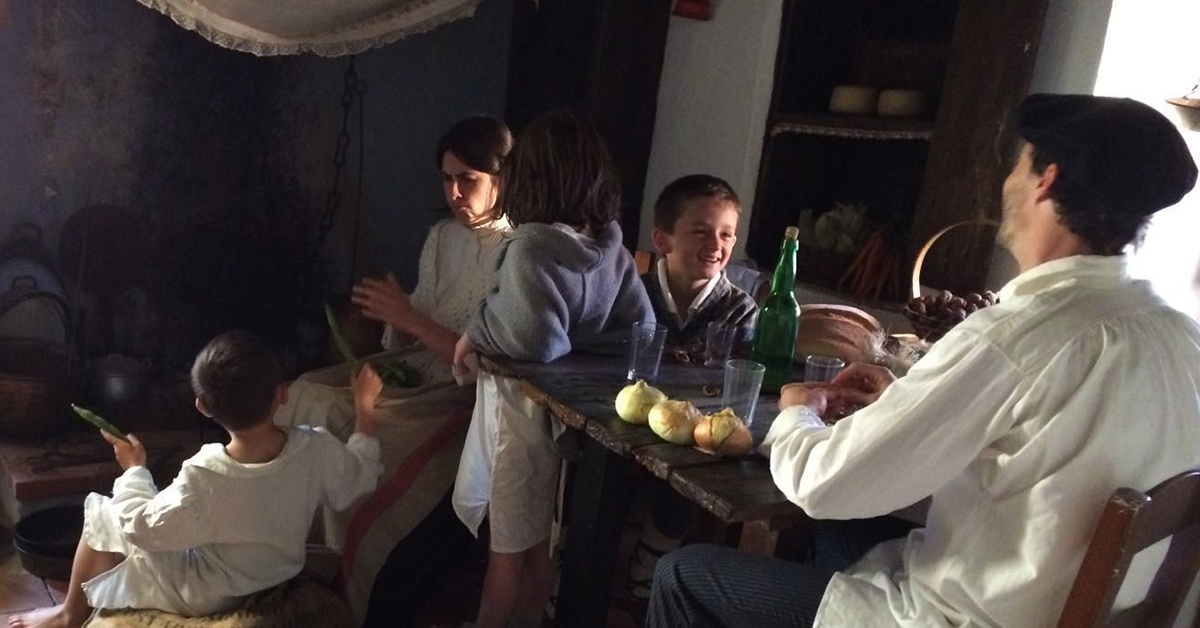Basque ethnography at a glance
The house has been for centuries a fundamental pillar of society and the very foundation of our way of life. Family and home have been essentially synonymous concepts in our culture: in fact, instead of the term familia ‘family’ we use the expression etxekoak, from etxe ‘house, home’, to signify ‘them who belong to the house, household’, a clear exponent of the circumstance we try to illustrate. Traditionally, the members of a household make up the house, and conversely, they owe their name and identity to their birthplace, as Xalbador’s beautiful verses remind us. A close, solid and indivisible bond, if ever there was one.
Oi gure etxe maitea,
orroitzapenez betea,
zorionaren atea!
Zure altzoan iragana dut
sortzetik orai artea.
Izanagatik pobrea,
bertzeak baino hobea
ni sortu nintzan etxea.
(Oh dear house, / full of memories, / gateway to happiness! / Guardian of my past / from birth up to now. / Though poor, / better than any other / the house where I was born.)
(“Sortetxeari [To the house where I was born]”. Xalbador, 1972.)
House and household constitute a complex unit composed by multiple elements, since the traditional house is not only a building, but also a form of participation in the village or the community, as well as a unique economic and legal system. It goes without saying that there are and have been houses of various kinds: peasant houses, fishermen houses, urban houses…, each one adapted to its immediate environment and generally conditioned by its own typology. Moreover, customs and beliefs, and even trades, have by tradition been associated with the house itself, lineage being, as a result, created and marked according to the lifestyles of each individual and his or her descendants.
The notion of house or home could be analysed with respect to manifold criteria, depending on whether it is regarded as: a political body; a production, work and consumption centre; a domain where relationships between women and men are established; a material life scenario; a site for cultural transmission and rituals; a place where norms and values are passed on; and much more. Thus, the house presents itself as the very first means to articulate society, allowing for extensive coverage and different methodological approaches. To round off, we could say that the house is a human construct, and yet it ultimately shapes us.
For the last few months, as we have experienced the need to stay at home, we might have taken the chance to recall all of the above and have perhaps recovered and reintegrated into our lives one or other dimensions of the recent past. Should that be so, what is it which we have regained and to which effect?
Antzasti – Basque Traditional House
Translated by Jaione Bilbao – Ethnography Department – Labayru Fundazioa



